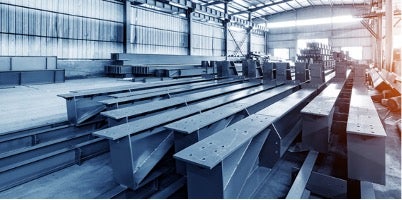
EDF, Edison, Ansaldo Energia, Ansaldo Nucleare and Federacciai have signed a Memorandum of Understanding (MOU) to promote cooperation in the use of nuclear energy to boost the competitiveness and decarbonisation of the Italian steel industry. The parties will consider co-investment opportunities in new nuclear energy and, in particular, in the construction of small modular reactors in Italy over the upcoming decade.
They will make use of the SMR technology promoted by EDF, of Edison’s expertise, and of the engineering and industrial capabilities of Ansaldo Energia and Ansaldo Nucleare. They will explore the opportunity to establish a supply contract of nuclear energy on the medium and long term, leveraging primarily the capacity on the interconnector already operating between Italy and France, contributing to the decarbonisation of steel production in Italy.
The signatories said nuclear energy has a key role to play in achieving European Union decarbonisation targets for 2050 and in improving the competitiveness of the industry. Reopening the debate about the use of the new nuclear in Italy is considered a decisive step. The goal is to implement an energy transition that, together with the development of renewables and green gas, can rely on a baseload and flexible energy source at fixed costs.
Potential industrial cooperations will fully benefit from the following competences of the signatories:
- Ansaldo Energia, as an Original Equipment Manufacturer of turbines and generators and service provider for the energy industry;
- Ansaldo Nucleare, as a system and component developer, service provider and developer of advanced technologies for nuclear plants;
- EDF, as a major nuclear owner-operator, committed to implementing new nuclear projects based on carious technologies including (i) small modular reactors, (ii) EPR1200 mid-size reactors and (iii) EPR large-size reactors;
- Edison, as one of the main players in the energy sector in Italy, with a highly diversified renewable energy portfolio (wind, hydroelectric, photovoltaic) and two latest-generation thermoelectric power plants as well as experience in supplying energy and services to Italian industrial customers;
- Federacciai, as the representative entity of Italian steel companies, committed to protecting the interests of the sector.
The agreement signed today is of crucial importance for the Italian steel industry and the entire production chain. The commitment of Italian steelmakers is clear: we intend to lead the transition to a fully sustainable steel industry,” said Antonio Gozzi, President of Federacciai. “Within a few years, Italy can become the first country in the world to produce fully decarbonised steel. Nuclear power will be a strategic and much needed component in achieving such ambitious goals.”
Xavier Ursat, EDF Group Senior Executive Vice President in charge of Strategy, Technologies, Innovation & Development noted: “Our aim is clearly to support the relaunch of the nuclear option in Italy and to strengthen industrial cooperation between the two countries in Italy, in France and in Europe.”
Nicola Monti, Edison CEO said: “The development of a national supply chain for the production of new nuclear energy, making the most of the technological advances of recent years and investing in the improvement of local skills, represents a phenomenal opportunity to achieve not only decarbonisation targets, but also greater independence and security for the country’s energy system.”
Ansaldo Energia CEO Fabrizio Fabbri said cooperation at both national and European level is crucial to being competitive and to decarbonisation. Daniela Gentile, Ansaldo Nucleare CEO said the agreement allows Ansaldo Nucleare to make available its experience and capabilities as a systems integrator and developer of new nuclear technologies. “The Italian industry recognises the importance of a European approach in the nuclear sector and, as part of the Ansaldo Energia Group, we hope that this will result in the implementation of Italian nuclear projects over the next ten years.”
Italy was a leading nuclear power-producing country in the 1960s but chose to phase out all nuclear plants after a 1987 referendum following the Chernobyl disaster. It closed its last two operating plants, Caorso and Trino Vercellese, in 1990.
The fourth Berlusconi government attempted to launch a new nuclear power programme but that was also rejected by a referendum in 2011, shortly after the Fukushima accident. However, interest in nuclear is now being revived. Earlier in July, Minister of the Environment & Energy Security Gilberto Pichetto said the Italian government plans to present a law that allows investment SMRs.






